[2021 Spring] CS61A 学习笔记 lecture 15 Iterators + Generators
主要内容:迭代器和生成器
目录
Iterators
An iterator is an object that provides sequential access to values, one by one.
- iter(iterable) returns an iterator over the elements of an iterable.
- next(iterator) returns the next element in an iterator.

Iterators vs. For loops
一般情况下使用for循环进行迭代,除非有特殊理由需要用到next() / iter() / StopIteration, for循环易读也更优化。
迭代器:
ranked_chocolates = ("Dark", "Milk", "White")
chocorator = iter(ranked_chocolates)
try :
whileTrue:
choco = next(chocorator)
print(choco)
except StopIteration:
print("No more left!")
for 循环(其实是一种语法糖)
ranked_chocolates = ("Dark", "Milk", "White")
for chocolate in ranked_chocolates:
print(chocolate)
Functions that return iterators
返回迭代器的函数有:reversed(sequence), zip(*iterables), map(func, iterable, ...), filter(func, iterable)
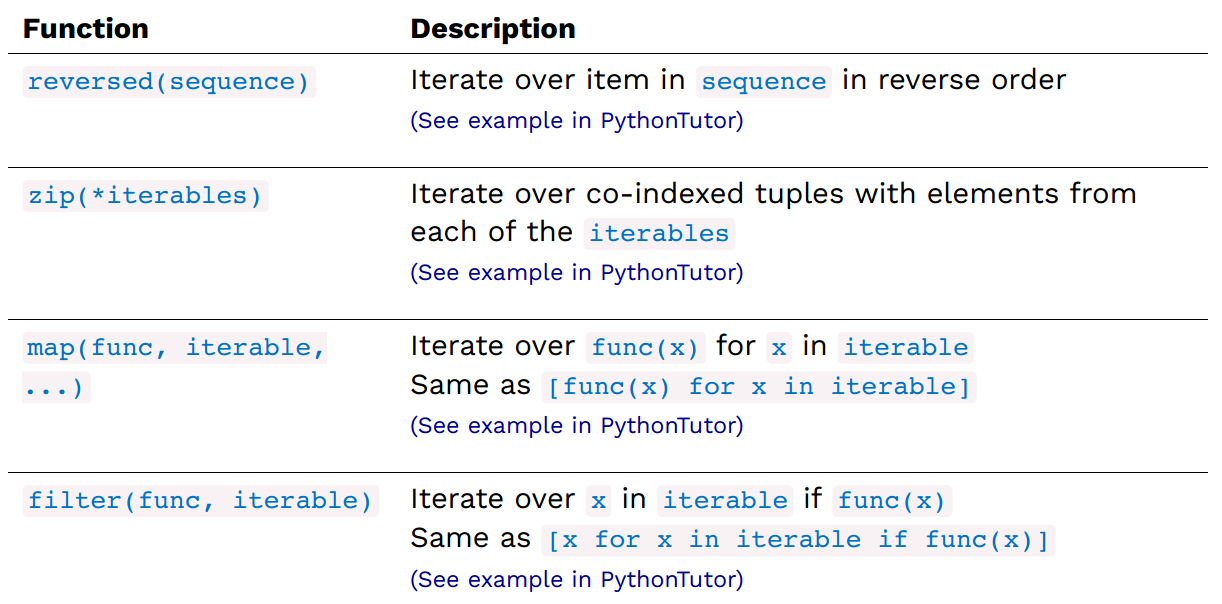
Bonus 1:生成迭代器后,修改iterable的值是很危险的
使用reversed生成迭代器后,
- 在原列表后添加元素,迭代器不会添加。

- 修改原列表中的值,迭代器返回值也会被修改,但是不会重新排序。
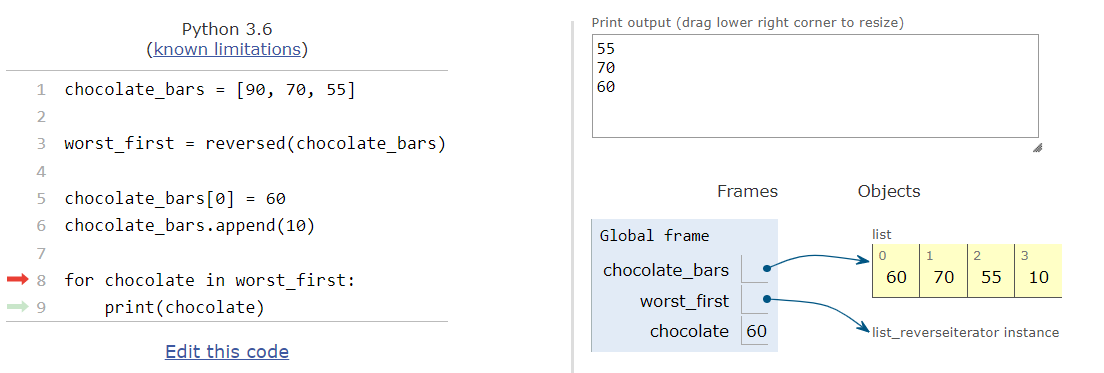
- list(iterator)会生成新的列表,原列表中值的变化不会改变新列表的值。
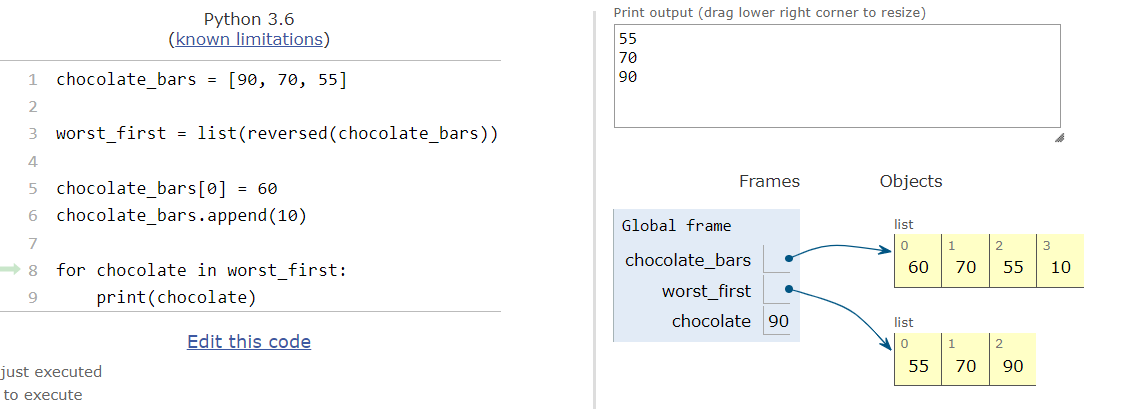
Generators
A generator is a type of iterator that yields results from a generator function.
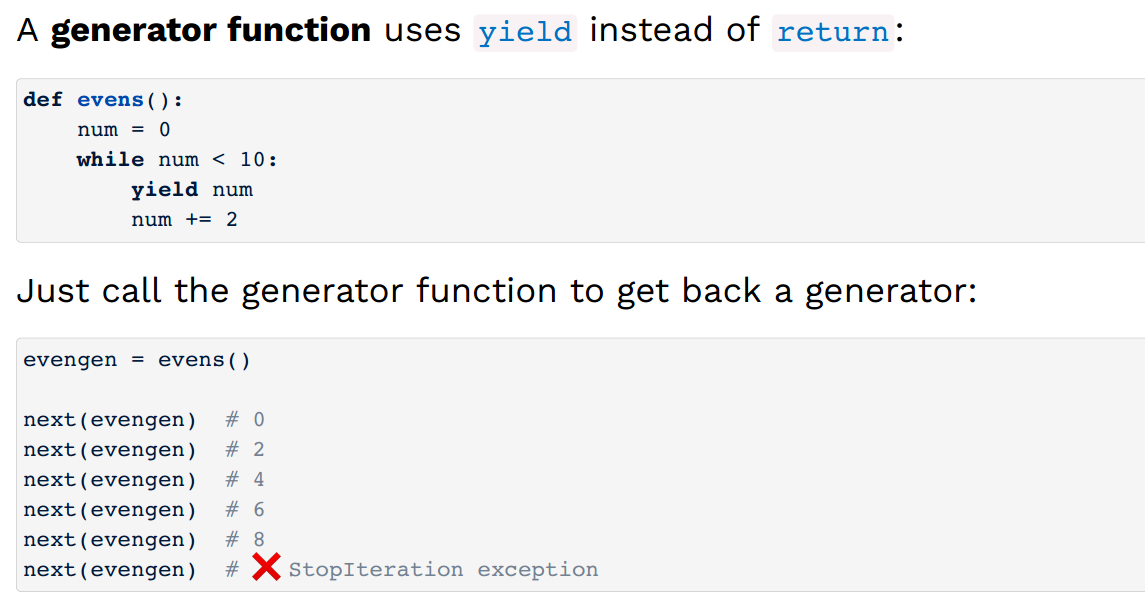
How generators work
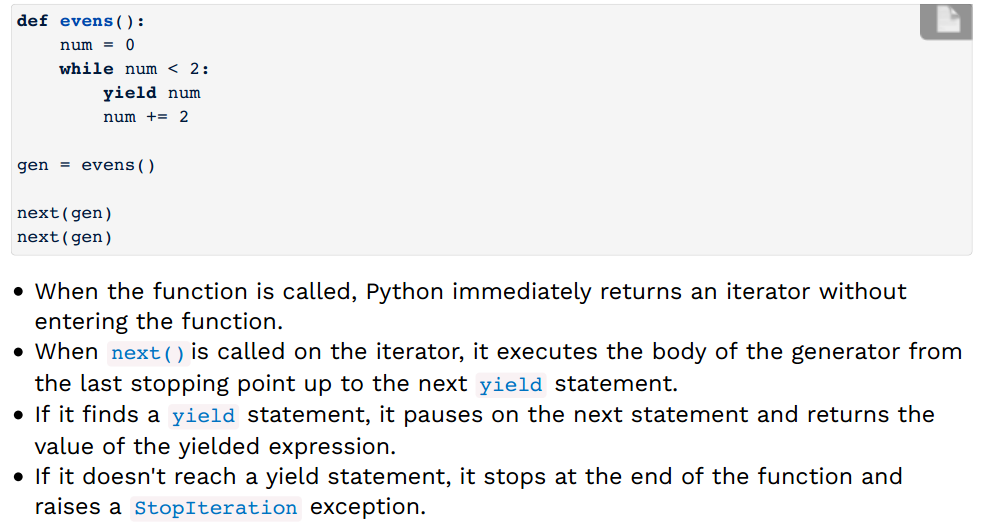
Looping over generators
生成器是一种特殊的迭代器。
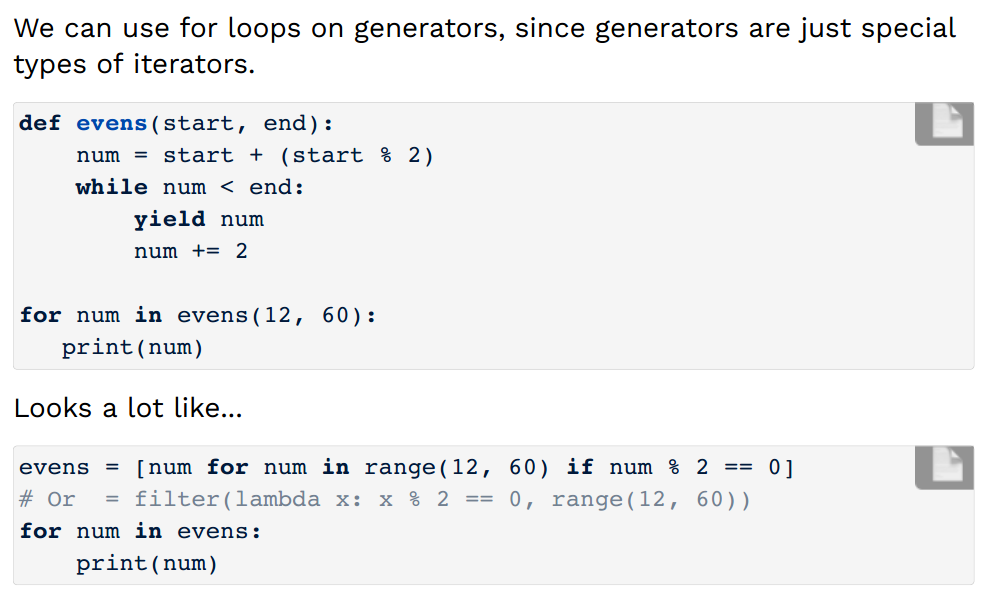
Why use generators?
只需要少量元素时,使用生成器相比生成整个序列可以节省很大的空间。
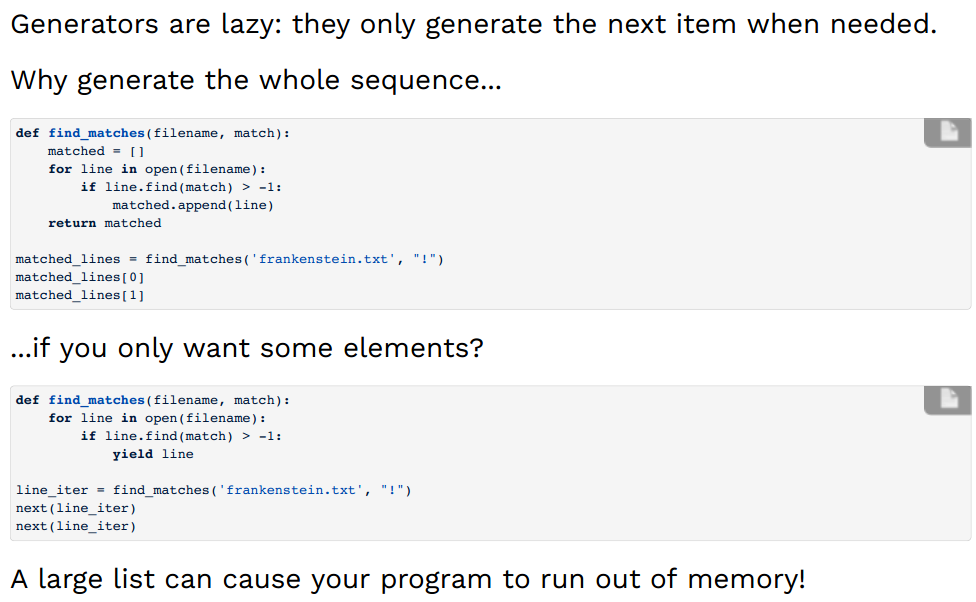
Yielding from iterables
def a_then_b (a, b):
yield from a
yield from b
list(a_then_b(["Apples" , "Aardvarks"], ["Bananas", "BEARS"]))
Recursive yield from
def factorial(n, accum):
if n == 0:
yield accum
else:
yield from factorial(n - 1, n * accum)
for num in factorial(3, 1):
print(num)
Recursive generators for trees
def leaves(t):
yield label(t)
for c in branches(t):
yield from leaves(c)
t = tree(20, [tree( 12,
[tree(9,
[tree(7), tree( 2)]),
tree(3)]),
tree(8,
[tree(4), tree( 4)])])
leave_gen = leaves(t)
next(leave_gen)

